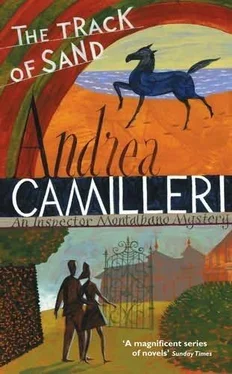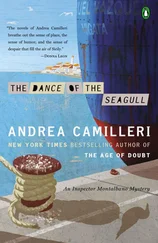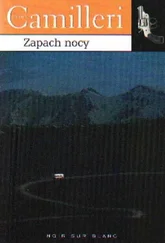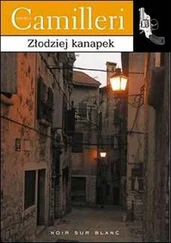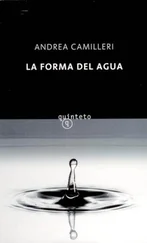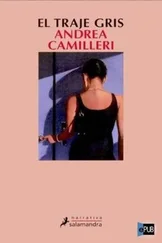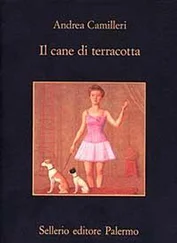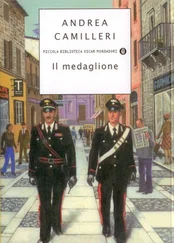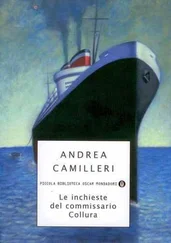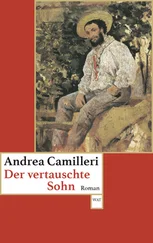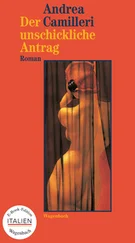This time it was Fazio.
“Chief ? It’s all done. Inspector Augello has arrested Prestia and is taking him to the prosecutor’s.They’ve recovered Esterman’s horse. It appears to be in excellent shape. They’ve put it into the van.”
“Where are they taking it?”
“To the stable of a friend of Inspector Augello’s.Augello has also informed Montelusa of everything.”
“Thanks, Fazio.We’ve really done a very fine job.”
“It was all your doing, Chief.”
He went out on the veranda. Leaning against the French door, he said to the two women:
“After we’ve eaten, I have something to tell you.”
He didn’t want to ruin the meal that was waiting for him with the tremendous bother of hugs, tears, emotions, and thanks.
“Let’s go see what Adelina has prepared for us,” he said.
Like the other novels with Inspector Montalbano as protagonist, the present one was suggested to me by two news items: a horse found slaughtered on a beach near Catania, and the theft of two horses from a stable in Grosseto province, in Tuscany.
By this point I think it useless to say—but I’ll do so anyway—that the names of the characters and the situations in which they find themselves have been entirely invented by me, and therefore have no connection whatsoever with any actual, living persons.
Should anyone happen to recognize him—or herself in this story, it only means they have a better imagination than I do.
“Tu che a dio spiegasti l’ali”:This is the title, and first line, of the final aria of Gaetano Donizzetti’s Lucia di Lamermoor (1835). It is sung by Edgardo, the heroine’s lover, after he learns that Lucia has died. The title means, “You who have spread your wings to God,” and the aria sings of the lovers’ imminent reunion in heaven.
all the vocumprà in the province: Vocumprà are the foreign peddlers, usually of North African or sub-Saharan origin, that one often encounters on the streets of today’s Italy.The name is derived from the question Vuoi comprare? (or Vuole comprare? —Do you want to buy?), which the peddlers shorten to Vocumprà (sometimes to Vucumprà ), an abbrevation also redolent of the Neapolitan and Roman dialects, which may be where they first picked it up.
The bright-eyed goddess . . . :A common epithet for Greek goddess Pallas Athena.
cipuddrata :Sicilian for cipollata , that is, onion sauce.
“No,Vario’s his given name”:In Italian bureaucratic usage, the surname is always placed before the first name, giving rise to some confusion in cases such as the present one,Vario Ippolito, where both names could be first names.
wearing an expression fit for All Souls’ Day:In Italy, as in the Spanish-speaking world, All Souls’ Day (November 2, immediately following All Saints’ Day) is called the Day of the Dead, and commemorates the faithful departed. The Sicilian expression used by Camilleri actually translates literally as “a November-the-second face.”
Quartetto Cetra:The Quartetto Cetra, also known as I Cetra, was a popular Italian vocal quartet in the 1940s who performed for the stage and eventually, in the 1950s, for television. The Viscount of Castelfrombone and the Duke of Lomantò were two characters in their often satirical songs and skits.
It was like the ending of a tragic film:Namely Rossellini’s Viaggio in Italia ( Journey to Italy , 1954), starring Ingrid Bergman and George Sanders, a moving tale of doomed love, the closing image of which has Bergman’s character being swept away by a surging throng of Neapolitans from her estranged husband, played by Sanders.
first with that twenty-year-old girl, whose name he did not even want to remember:See Andrea Camilleri, August Heat , Penguin 2009.
“We’ll go visit the temples”:The model for the fictional town of Montelusa is the city of Agrigento (Girgenti in Sicilian), which was a major Greek center (Akragas) in antiquity. Seven monumental temples in the Doric style survive in what is known as the “Valley of the Temples,” just outside of modern Agrigento.
Shrimp, jumbo prawns, squid, smoked tuna, fried balls of nunnatu , sea urchins, mussels, clams, octopus morsels a strascinasale , octopus morsels affucati , tiny fried calamari, calamari and squidlets tossed in a salad with orange slices and celery, capers wrapped in anchovies, sardines a beccafico , swordfish carpaccio . . . : Nunnatu (Sicilian for neonato , or “newborn”) are tiny newborn fish, available only at certain times of the year. Octopus a strascinasale is simply boiled in salted water and dressed with olive oil and lemon juice; and affucatu means “drowned,” in this case in a classic Sicilian tomato sauce base for seafood. Sardines a beccafico is a Sicilian specialty named after a small bird, the beccafico ( Sylvia borin ,“garden warbler” in English), which is particularly fond of figs ( beccafico means “fig-pecker”).The headless, cleaned sardines are stuffed with sautéed bread crumbs, pine nuts, sultana raisins, and anchovies, then rolled up so that they resemble the bird when they come out of the oven.
Madamina, il catalogo è questo :Literally, “Here is the list, little lady.” The famous aria from Mozart’s Don Giovanni , in which Leporello, Don Giovanni’s servant, enumerates and describes his master’s many female conquests.
Fangio on the Carrera Panamericana:Juan Manuel Fangio (1911-1995) of Argentina was a famous race-car driver who dominated Formula 1 racing for much of his career. He won the Carrera Panamericana in 1953.
the horse . . . was made of bronze and half collapsed, sitting on its haunches, exactly like the RAI horse:The symbol of the RAI (Radiotelevisione Italiana, the national, state-owned radio and television network) is as described, and there is a bronze statue of it outside the network offices.The author worked for many years directing television and stage productions for the network.
He broke into “Che gelida manina” in a loud voice:A famous aria from Act I of Giacomo Puccini’s opera La Bohème (1896), sung by Rodolfo, the destitute poet and male lead, to Mimì, the beautiful seamstress and lead female role, when the girl loses her key in the dark during a visit to the poet’s garret, and he helps her to look for it. I quote below the first half of the aria, the part from which Montalbano sings a few lines (and not always correctly). I have provided a translation for the non-Italian reader of the passage from which the inspector sings.
Che gelida manina,
se la lasci riscaldar.
Cercar che giova?
Читать дальше
